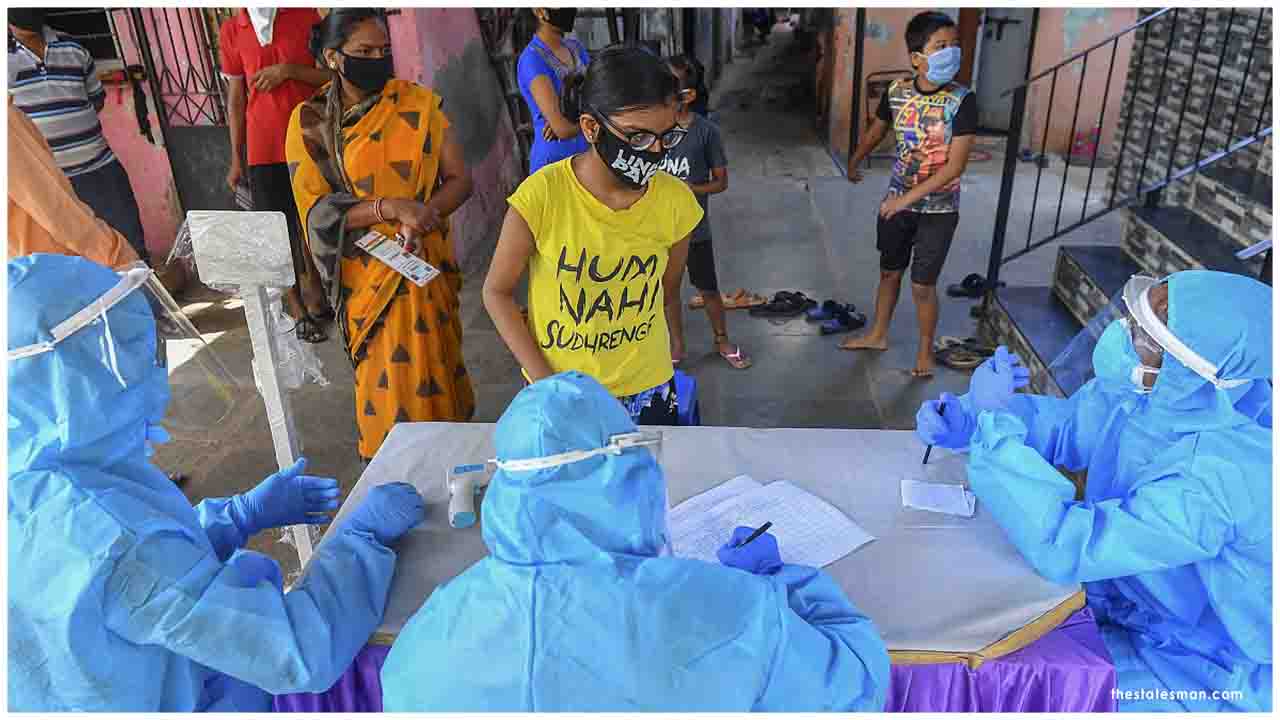As many as 56.13% of the 28,000 people sampled during Delhi’s fifth serological survey were found to have developed antibodies against the Sars-CoV-2 virus, state health minister Satyendar Jain said on Tuesday.
Addressing a press briefing, Jain said of the 11 districts in Delhi, the lowest sero prevalence was found in the north district where an average of 40.09% of the people sampled were found to have been exposed to Covid-19 so far. The highest sero prevalence was recorded in the southeast district with 62.18% of the sampled people having antibodies against the virus. Delhi’s southeast district was also one of the first districts which turned into a Covid-19 hot spot as early as March last year with several people who visited the Nizamuddin Markaz testing positive for the virus.
Data shared by the Delhi government showed that except the north district, all the other 10 districts in Delhi had a sero prevalence of more than 50%. Of these 10, six had a sero prevalence of more than 55%.
In the fifth sero survey done in the national Capital, antibodies have been detected in 56.13% of the population. This was the largest survey conducted by the Delhi government so far. Delhi has largely won over Covid-19, but we should continue to practise Covid-19 appropriate behaviour,” Jain said.
The minister said the full report of the latest serological survey will be released in a day or two after further examination of the findings. The survey was conducted between January 15 and January 23 and at least 100 samples were collected from each of the 272 municipal wards of Delhi.
“Like the results in the previous surveys, this time too the number of females having antibodies was more than that of males. There means that all these people had Covid at some point and now have fully recovered. In total, the sero prevalence in Delhi is ranging from 49%-62% with an average of 56.13%,” Jain said.
He stated that over the past 10-12 days, Delhi has been reporting less than 200 Covid-19 cases every day and the positivity rate, which at one point had touched 15%, is now stable at lower than 1% for the past one month.
“Still, I want to urge everyone to continue wearing masks for a few more months. In the past two months, the compliance has improved substantially, the result of which is in front of everyone - Covid cases have drastically come down. If people continue to wear masks this way, we will be able to totally control the virus in the next few months,” the minister said.
Dr Nutan Mundeja, director general of health services (Delhi state health mission) said this time, the sero survey was not just bigger in scale, but also a better technology was used.
“We used CLIA technology this time. These kits have higher sensitivity as a result of which results come out more accurate. All the samples were tested at the ILBS hospital to ensure uniformity. The survey was conducted in association with Maulana Azad Medical College. The samples were collected from people of all socio-economic strata and from across all kinds of population and age groups,” said Mundeja.
On herd immunity, minister Jain said there is no clear yardstick as of now to define the term. “Some say herd immunity is achieved at 50%, others say it should be 60%. I don’t think we should get into the debate of herd immunity now. This is a new form of virus or disease, we should not get lax with our precautionary measures because in October, we had thought the virus was brought under control, but then we got the third wave,” said Jain.
Herd immunity is when enough people have immunity – estimated to be 60-80% of the population in case of Sars-CoV-2 – to a disease that it leaves very few vulnerable people for it to spread to, slowing an outbreak.
Delhi’s first serological survey was done in the city in June-July and it had shown that 23.4% of people surveyed had developed antibodies against the virus. Similar surveys in August showed that 29.1% of people had antibodies, 25.1% in September, and 25.5% in October. A positive result implies that the person has developed antibodies against the virus. This means that the person was infected at some point and developed immunity against it.
Jain said that earlier, the Delhi government was conducting sero survey every month. “But, now we are doing it after 1.5-2 months. The next survey will also be done after about 2 months,” he said.

 In the fifth sero survey done in the national Capital, antibodies have been detected in 56.13% of the population
In the fifth sero survey done in the national Capital, antibodies have been detected in 56.13% of the population






.jpeg)






.jpeg)






.jpeg)









.jpg)


.jpg)
